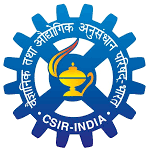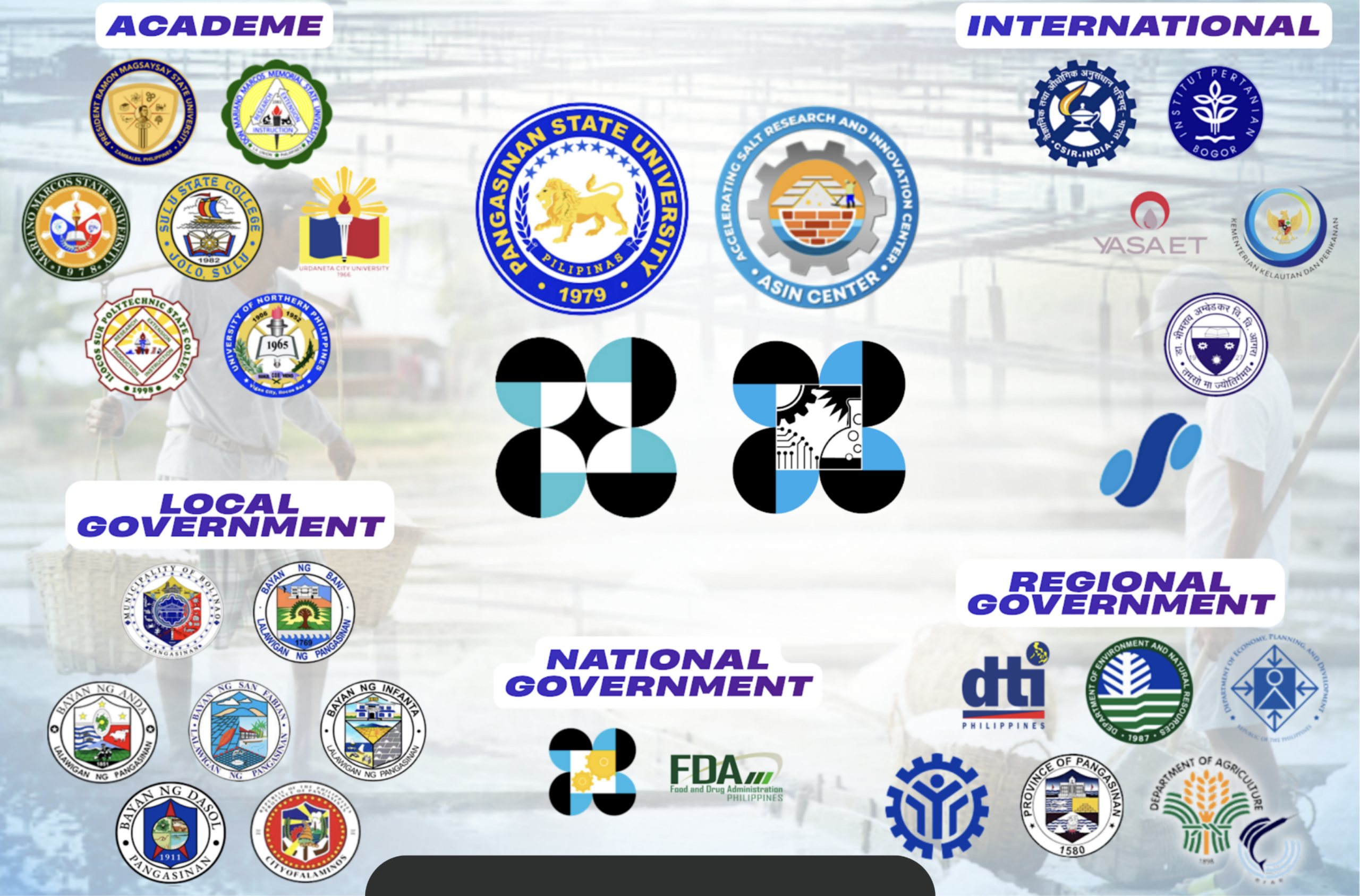COUNTDOWN to ASIN R&D CENTER INAUGURATION CEREMONY
Day(s)
:
Hour(s)
:
Minute(s)
:
Second(s)
Message
The Pangasinan State University extends its heartfelt gratitude to the Department of Science and Technology (DOST), particularly to Secretary Renato Solidum Jr., DOST-PCIEERD Executive Director Dr. Enrico C. Paringit, and DOST Region 1 Director Dr. Teresita A. Tabaog, along with all officials , for their invaluable support and leadership in driving forward the Niche Centers in the Region Program for Salt.
The NICER Program stands as a groundbreaking initiative in the Philippines, dedicated to the revival of the salt-making industry. With the overarching objective of achieving 100% national salt sufficiency, this program embodies our shared commitment to sustainable economic development through research, innovation, and capacity-building efforts within the salt industry.
At Pangasinan State University, we fully embrace our role in research and extension, and we are honored to our full support to the NICER Program. Through our mandate in research, we are dedicated to contributing our expertise, resources, and efforts to further enhance and expand the impact of this program.
As we continue to collaborate with our partners in government, academia, and industry, we are committed to exploring new avenues for innovation, knowledge dissemination, and skills development within the salt-making sector. Through these collaborative endeavors, we aim to empower local salt producers, promote technological advancements, and ultimately, foster a resilient and thriving salt industry in the Philippines.
The NICER Program is a beacon of hope and progress for the salt-making communities nationwide. Together, with unwavering dedication and collective effort, we are confident that we can overcome the challenges facing the industry and pave the way toward a brighter and more sustainable future for all stakeholders involved.
Once again, we express our sincere appreciation to our partners in science and innovation, and we look forward to continuing this journey of collaboration and progress towards the revitalization of the salt industry in the Philippines.
Pangasinan State University
Message
I warmly welcome you all here in this platform for information dissemination for the ASIN Center.
PSU is grateful to establish ASIN Center through DOST NICER Program. It is a dedicated center for salt research and innovation which serves as a collaboration hub for different stakeholders such as government agencies, colleges or universities, private companies, and other industries. The collaboration will address global challenges related to salt, such as salinization of water, climate change, food security, and health.
By accelerating salt research and innovation in the province, we can ensure a sustainable and efficient salt industry that will benefit not only the economy but also the health and well-being of every Filipino. The center hopes to make significant contributions towards addressing the national salt challenge. Through research and innovation, the center aims to contribute towards achieving the United Nations Sustainable Development Goals and with increased collaboration and investment in research, we can unlock the potential of salt and pave the way for a brighter future for the province and the country.
Mabuhay ang PangASINan! Mabuhay PSU! Mabuhay DOST!
Dr. Razeale G. Resultay
Vice President for Research, Extension & Innovation Office
Pangasinan State University
Message
I would like to begin by expressing my heartfelt appreciation to the esteemed leadership of Pangasinan State University, President Dr. Elbert M. Galas, and Vice President for Research, Extension, and Innovation, Dr. Razeale G. Resultay. Your vision and guidance have been instrumental in making this program possible and successful.
A special note of gratitude extends to our project leaders: Dr. Nathaniel R. Alibuyog from Mariano Marcos State University, Dr. Janice M. Baysa from President Ramon Magsaysay State University, and Dr. Andie John D. Tadeo from Don Mariano Marcos Memorial State University. You have been the brains and the hearts of this program, lending us your expertise and dedication to make this program happen.
In addition, profound thanks to our valued partners in government and salt industry in Region 1, including the Department of Science and Technology (DOST), Bureau of Fisheries and Aquatic Resources (BFAR), Department of Trade and Industry (DTI), Department of Environment and Natural Resources (DENR), Technical Education And Skills Development Authority (TESDA), Commission on Higher Education (CHED), and our salt industry partner, Philippine Association of Salt Industry Networks (PhilASIN). Your support has been crucial in guiding our program objectives to achieve its success.
Gratitude also extends to the provincial government of Pangasinan and all stakeholders whose support has been indispensable throughout this program. Your involvement and feedback have been essential in ensuring the relevance and sustainability of our program.
The DOST NICER Program represents a pioneering effort in the Philippines aimed at revitalizing the salt-making industry, with the main goal of achieving 100% national salt sufficiency. This program is a testament to our unwavering dedication, hard work, and commitment to fostering sustainable and inclusive economic growth through research, development, and training initiatives for the salt industry.
We have a lot of work to do and a lot of challenges to overcome. We still have to expand our program to other regions and provinces, where the salt industry is still struggling or underdeveloped. We still have to compete with the imported salt, which is cheaper but of lower quality and less nutritious. We still have to cope with the effects of climate change, which pose threats to the availability and quality of seawater and solar energy. We still have to educate and empower the consumers, who are often unaware of the benefits and importance of consuming locally produced and iodized salt.
Therefore, we need your continued support and cooperation. We need you to join us in our mission to revitalize the salt industry in the Philippines. We need you to share our vision of a salt-sufficient and salt-smart nation. We need you to take this opportunity to transform the salt industry into a source of pride, prosperity, and progress for our country.
Lastly, I extend my sincere thanks to the Department of Science and Technology, Dr. Renato Solidum Jr., DOST-PCIEERD Executive Director Dr. Enrico C. Paringit, DOST Region 1 Director Dr. Teresita A. Tabaog, and all individuals involved in driving forward this program. Thank you for your trust and the opportunity to lead this program to help the dying of the salt industry in the Philippines. Thank you for your recognition and appreciation of our efforts and achievements. Thank you for being our partners in science and innovation.
Together, we can make the Philippine salt industry great again. Together, we can make a difference. Together, we can make history.
Engr. Rex B. Basuel
Program Director
DOST NICER ASIN CENTER
Vision
To accelerate the country’s transition to a sustainable salt industry and be recognized locally and globally.
Mission
To serve as a trademark of knowledge exchange and development of innovative and sustainable salt production and utilization technologies.
Importance of Salt
The importance of salt can never be overemphasized due to its universal need and application in food, agri-fishery, agro-industrial, and chemical industry.
Fish Processing
Coconut Industry
Chemical Industry
Water Treatment
Feed Mill
Home Consumption
Goals
Training personnel in salt research, technology, and innovation
Developing new and innovative technologies for salt production, processing, and utilization
Improving the quality, safety, and sustainability of salt
Providing training and extension services to the salt industry
Promoting the use of salt in various industries
Specialized Focus
Dedicated solely to the salt industry, concentrating on developing new production methods, improving existing processes, and exploring new markets for salt.
Local and International Collaboration
The ASIN Center collaborates with local institutions such as universities, government agencies, and industry organizations.
Holistic Approach
Addresses multiple dimensions of the salt industry, including the development of sustainable and climate-resilient salterns.
Hands-On Training and Capacity Building
This emphasis on capacity building sets it apart as a practical resource for skill development within the salt industry.
ISSUES AND CHALLENGES OF THE PHILIPPINE SALT INDUSTRY
Limited Government Policies Supporting the Growth of the Local Salt Industry
Climate Change
Limited Availability of Materials and Equipment for Salt 3 Production
Aging population of salt producers
Non-compliance with Food Safety Standards
Limited R&D studies on salt production
Urbanization
Specialized Focus
Niche Centers in the Regions (NICER) Program
Local and International Collaboration:
Holistic Approach
Hands-On Training and Capacity Building
Vision and Mission for Sustainability
The ASIN Center has a clear vision and mission focused on accelerating the country’s transition to a sustainable salt industry. Its goals include training personnel, developing innovative technologies, improving quality and safety, and promoting the use of salt in various industries.
Did you know?
Did you know that the province of Pangasinan derived its name from salt or “asin”?
Pangasinan or PanagASINan literally means “where salt is made”. Pangasinan’s top salt producers
The town of Dasol in the western part of Pangasinan, is still the province’s top salt producer.
In 2021, Dasol produced 24,000 metric tons (MT) of salt from its more than 10,000 banigan (salt beds) located in 13 of its 18 villages, according to the data gathered by the Office of the Provincial Agriculturist (OPAg).
International Partnerships

The Central Salt and Marine Chemicals Research Institute (CSMCRI)

Salt Industry Center of Japan
Partnerships




